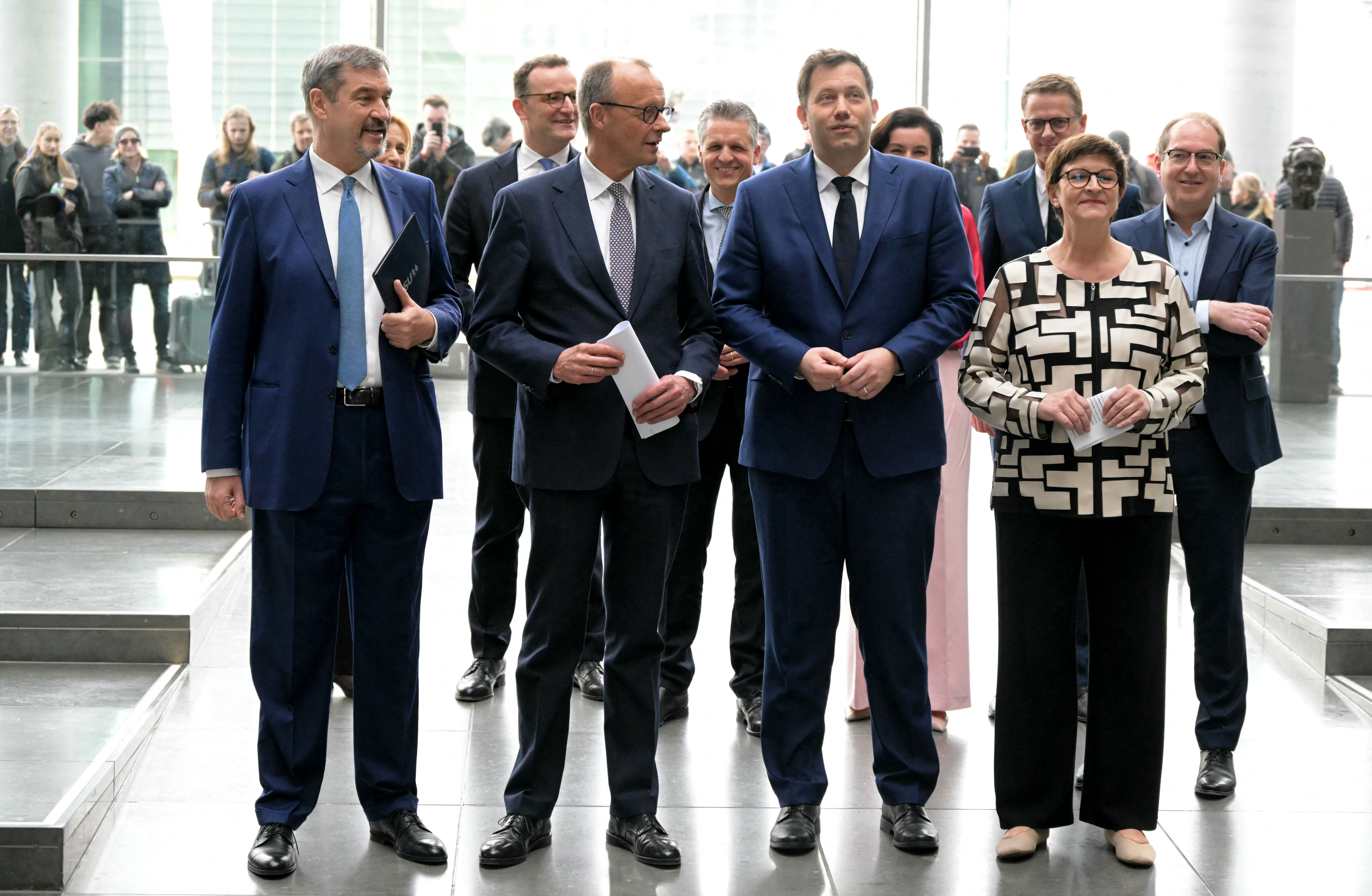German parties CDU/CSU and SPD reach coalition agreement

Germany's Christian Democratic Union (CDU/CSU) and Social Democratic Party (SPD) have agreed to form a new government, the parties announced at a press conference on Wednesday.
The coalition agreement comes more than six weeks after the general elections on 23 February. CDU leader Friedrich Merz is poised to become the new chancellor.
He said the parties wanted to send a "clear signal" that Germany was getting a "strong and effective government" that was "capable of solving the problems we face". These include a stricter migration policy, higher defence spending and boosting the German economy.
Turbulent times
Merz plans to take a leading role in Europe to navigate a challenging geopolitical landscape, including the "new turbulence" caused by the Trump administration's trade tariffs. He also addressed the war in Ukraine, saying that Russian president Vladimir Putin "shows no willingness to end the war".
This is the fifth time since the Second World War that Germany has had a "GroKo (grand coalition) with the CDU/CSU and SPD. Three of these governments have been led by Angela Merkel.
Members of both parties still have to give the green light to the deal, and the parliament will have to vote to make Merz's appointment official. The Bundestag vote is expected to take place on 7 May.
Far-right tops poll
The announcement comes on the same day as the far-right Alternative für Deutschland (AfD) tops the polls for the first time in history. The latest Ipsos poll on German voting intentions showed that 25 per cent of people would vote for AfD, 1 per cent more than the CDU.
"Citizens want political change – not a 'business as usual' coalition between the CDU/CSU and SPD!" AfD co-leader Alice Weidel wrote on X.
© PHOTO TOBIAS SCHWARZ / AFP
Related news
